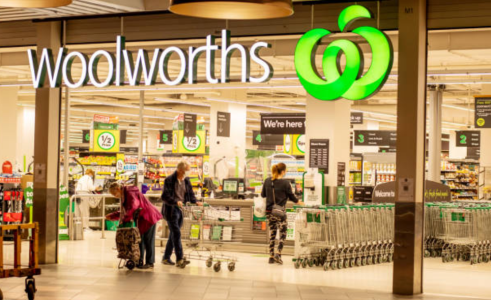Woolworths changes one word on popular meal—what it could mean for your next purchase
By
Gian T
- Replies 0
It’s remarkable how much weight a single word can carry, and Woolworths has just offered a striking example.
In its freshly updated 2025 Sustainability Report, the supermarket giant made a quiet adjustment that could have major consequences for Australia’s environmental future—and even for what ends up on your plate.
So, what’s all the fuss about? In last year’s report, Woolies listed Australian fresh beef as 'high' risk for deforestation, right alongside notorious environmental offenders like palm oil, soy, and cocoa.
But in the latest update, beef has been downgraded to 'low' risk. On the surface, it might seem like a minor edit, but conservationists and environmental groups are sounding the alarm, saying this change could have major consequences for our forests, wildlife, and the future of sustainable shopping.
Let’s break it down. Deforestation is a huge issue in Australia, especially in Queensland and New South Wales, where vast tracts of native bushland are cleared every year—mostly to make way for cattle grazing.
According to the latest government data, Queensland alone lost over 332,000 hectares of woody vegetation in a single year, with 86 per cent of that land cleared for pasture.
That’s a lot of trees, and a lot of lost habitat for our unique wildlife.
Beef production is a leading driver of this land clearing, making it a key focus for anyone serious about protecting Australia’s environment.
So when Woolworths, the country’s biggest buyer of Australian processed beef (snapping up around 7 per cent of the market), suddenly decides beef is 'low' risk, it sends a powerful message to the entire industry.
Woolworths says the change came after 'actively engaging' with the beef industry, suppliers, and government, and points to the European Commission’s recent re-rating of Australia as 'low risk' for deforestation.
The supermarket insists it’s still committed to a 'no-deforestation supply chain' and will review its approach if new evidence emerges.
But environmental groups aren’t convinced. The Wilderness Society called the move 'laughable,' arguing that removing beef from the list of priority commodities undermines efforts to protect wildlife habitat.
The Australian Conservation Foundation (ACF) went even further, calling the change 'extremely worrying' and pointing out that animal agriculture is the number one driver of woodland destruction in Australia—the only developed country considered a global 'deforestation hotspot.'
Woolworths says it remains 'steadfast' in its commitment to eliminating deforestation by 31 December 2025, and that beef is still part of its no-deforestation goal.
But critics like Nat Pelle from the ACF aren’t reassured. 'I have a goal to take more holidays in the future. What it’s saying doesn’t read like a solid commitment,' he quipped.
There’s also concern about the transparency of the European Commission’s decision, which some say was influenced by Australian government lobbying and a temporary increase in forest cover after a few wet years.
But as Pelle points out, 'regrowth' forests don’t replace the ancient ecosystems lost to bulldozers—habitats that take centuries to develop and are home to species like the greater glider, which need old, hollow trees to survive.
For everyday Aussies, this debate might seem a bit removed from the weekly shop. But the truth is, our choices at the checkout can have a big impact.
If major retailers like Woolworths relax their standards, it could slow progress towards more sustainable beef production and make it harder for consumers to know if their purchases are contributing to deforestation.
On the flip side, increased scrutiny and public pressure can push supermarkets to do better. Woolworths says it takes any instances of deforestation in its supply chain 'seriously' and will address them on a case-by-case basis.
But without clear, enforceable requirements for suppliers, some worry this approach is too vague to make a real difference.
Australia is unique among developed nations for its high rates of land clearing, and the consequences are dire.
Ancient forests and woodlands are home to countless species found nowhere else on Earth, and their loss threatens everything from koalas to greater gliders. Once these habitats are gone, they’re gone for good—no amount of regrowth can bring back what’s been lost.
At the same time, beef is a staple for many Aussie families, and the industry is a major employer in rural areas.
Finding a balance between environmental protection and economic reality is no easy task, but it’s a conversation we need to have.

Do you think Woolworths is doing enough to protect our forests, or is this just greenwashing? Would you pay more for beef that’s guaranteed deforestation-free? We’d love to hear your thoughts and experiences—join the conversation in the comments below.
Read more: Woolworths and ALDI lead in fight against deforestation—what about Coles?
In its freshly updated 2025 Sustainability Report, the supermarket giant made a quiet adjustment that could have major consequences for Australia’s environmental future—and even for what ends up on your plate.
So, what’s all the fuss about? In last year’s report, Woolies listed Australian fresh beef as 'high' risk for deforestation, right alongside notorious environmental offenders like palm oil, soy, and cocoa.
But in the latest update, beef has been downgraded to 'low' risk. On the surface, it might seem like a minor edit, but conservationists and environmental groups are sounding the alarm, saying this change could have major consequences for our forests, wildlife, and the future of sustainable shopping.
Let’s break it down. Deforestation is a huge issue in Australia, especially in Queensland and New South Wales, where vast tracts of native bushland are cleared every year—mostly to make way for cattle grazing.
According to the latest government data, Queensland alone lost over 332,000 hectares of woody vegetation in a single year, with 86 per cent of that land cleared for pasture.
That’s a lot of trees, and a lot of lost habitat for our unique wildlife.
Beef production is a leading driver of this land clearing, making it a key focus for anyone serious about protecting Australia’s environment.
So when Woolworths, the country’s biggest buyer of Australian processed beef (snapping up around 7 per cent of the market), suddenly decides beef is 'low' risk, it sends a powerful message to the entire industry.
Woolworths says the change came after 'actively engaging' with the beef industry, suppliers, and government, and points to the European Commission’s recent re-rating of Australia as 'low risk' for deforestation.
The supermarket insists it’s still committed to a 'no-deforestation supply chain' and will review its approach if new evidence emerges.
But environmental groups aren’t convinced. The Wilderness Society called the move 'laughable,' arguing that removing beef from the list of priority commodities undermines efforts to protect wildlife habitat.
Woolworths says it remains 'steadfast' in its commitment to eliminating deforestation by 31 December 2025, and that beef is still part of its no-deforestation goal.
But critics like Nat Pelle from the ACF aren’t reassured. 'I have a goal to take more holidays in the future. What it’s saying doesn’t read like a solid commitment,' he quipped.
There’s also concern about the transparency of the European Commission’s decision, which some say was influenced by Australian government lobbying and a temporary increase in forest cover after a few wet years.
But as Pelle points out, 'regrowth' forests don’t replace the ancient ecosystems lost to bulldozers—habitats that take centuries to develop and are home to species like the greater glider, which need old, hollow trees to survive.
If major retailers like Woolworths relax their standards, it could slow progress towards more sustainable beef production and make it harder for consumers to know if their purchases are contributing to deforestation.
On the flip side, increased scrutiny and public pressure can push supermarkets to do better. Woolworths says it takes any instances of deforestation in its supply chain 'seriously' and will address them on a case-by-case basis.
But without clear, enforceable requirements for suppliers, some worry this approach is too vague to make a real difference.
Australia is unique among developed nations for its high rates of land clearing, and the consequences are dire.
At the same time, beef is a staple for many Aussie families, and the industry is a major employer in rural areas.
Finding a balance between environmental protection and economic reality is no easy task, but it’s a conversation we need to have.
Key Takeaways
- Woolworths has changed its 2025 Sustainability Report to describe Australian fresh beef as 'low' risk for deforestation, despite beef production being a leading cause of land clearing in Queensland and NSW.
- Conservation groups have slammed Woolworths for quietly downgrading beef’s risk status, arguing the move undermines efforts to eliminate deforestation from its supply chain.
- Critics say Woolworths’ updated position lacks transparency and clear requirements for suppliers to be deforestation-free, casting doubt on the company’s genuine commitment to its no-deforestation goal.
- Although Woolworths says it remains committed to eliminating deforestation by the end of 2025, campaigners remain sceptical, describing the use of the word 'goal' as too vague and lacking in concrete action.
Read more: Woolworths and ALDI lead in fight against deforestation—what about Coles?








